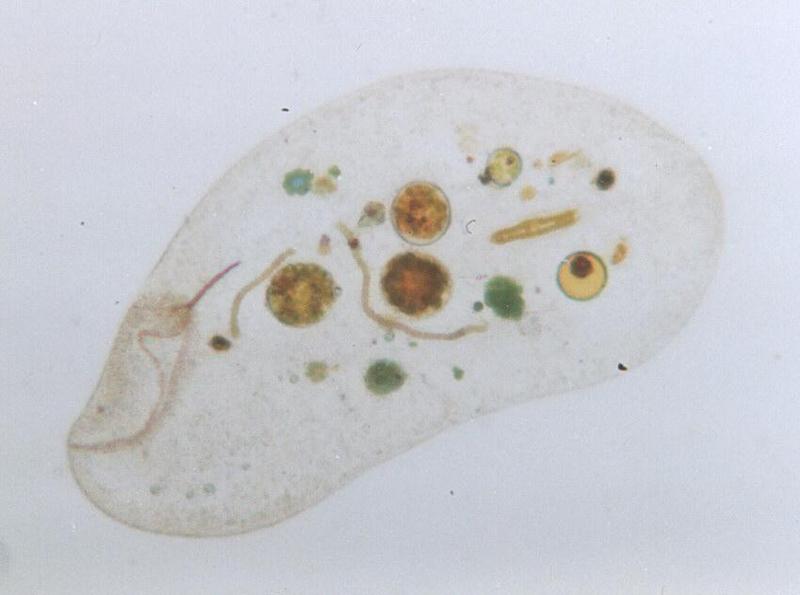|
| 질의: Earth eater | 결과: 23번째/32 | |
Protozoa - more ciliates - Loxodes
| 제목: | Protozoa - more ciliates - Loxodes
| | 올린이: | Schmode (schmode@vossnet.de)
| |

| 파일크기 : 42184 bytes
File date : 2001:02:21 16:31:43
해상도: 850x632
Jpeg process : Baseline
Posted Newsgroups: alt.binaries.pictures.animals
Posted 촬영일: Tue, 19 May 1998 23:05:06 +0200 |
Hello again,
here comes another member of the ciliate family. This fellow is called a
Loxodes.
I'm bringing you this shot for two reasons. First this picture nicely
shows the different stages of algae digestion. Loxodes is a ferocious
algae eater; it devours all kinds of them. The yellowish-green filaments
are called blue algae; these are, along with bacteria, the most
primitive forms of life found on earth, not even having a nucleus. The
barrel-shaped alga on the right is a diatomea; this is an alga with a
solid shell of silicic acid. The bigger round-shaped bubbles are,
precisely speaking, not algae but small euglenae; as you may remember
from one my "euglena acus" posting these organisms have numerous
animal-related features such as active movement and a light-sensitive
organ. Watch the green spot being closest to the lower margin of the
image; this is an euglena recently devoured with its red eye stain still
visible. You see that during the digestion process the colour of
Loxodes' prey changes from green to brownish-yellow; this is due to the
degradation of chlorophyll in this process.
The other reason I'm showing you this shot is different: You may have
noticed that this one is not as crisp as the ones you've seen before.
I'll try to make the story short: Ciliates move so quickly that they
need to be immobilized to get a good shot at them. Chemical methods
exist but I dislike them because they usually change the organism's
appearance. There is a much better method: In light microscopy you
usually watch the object between two glass slides - the object slide
(big, below the object) and the cover glass (small, above). If you just
let a sufficient amount of water evaporate the organism will get jammed
between the glass slides being unable to move quickly. This is the right
moment for the great shot; all my ciliate pictures were made that way.
But - that doesn't work with Loxodes. This organism, as soon as being
jammed somewhere, immediately starts a process of self-degradation which
leaves nothing but the half-digested algae. This is why it is extemely
hard to get a shot of Loxodes; you hardly have time to focus upon, and
when you hesitate to pull the trigger there is nothing left of Loxodes.
I wonder if big game photographers ever had to cope with problems like
this :-)
Bye,
Ralf
name="Loxodes.jpg" |
^o^
동물그림창고 똑똑전화 누리집
^o^
|
|

